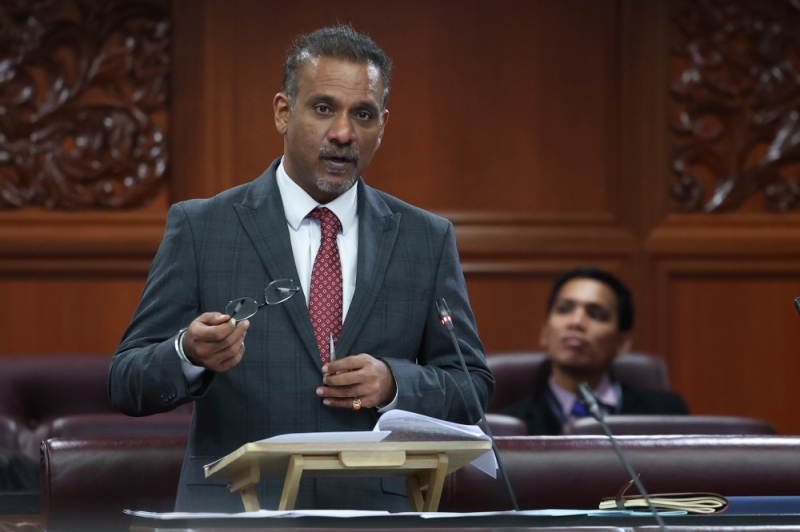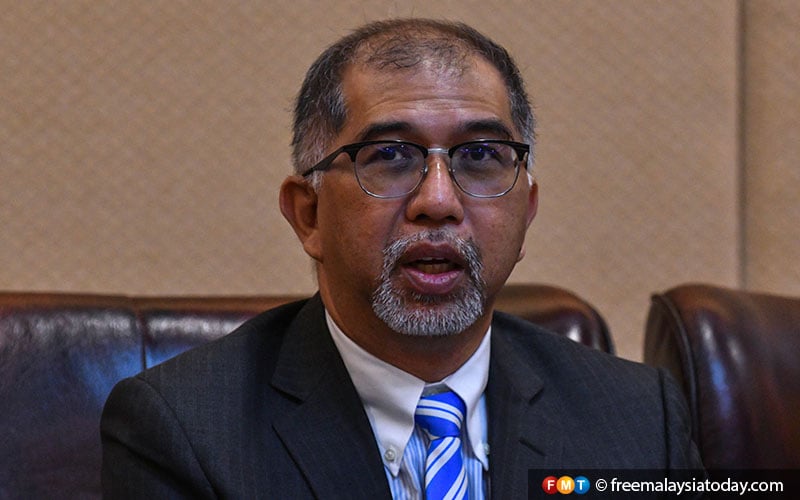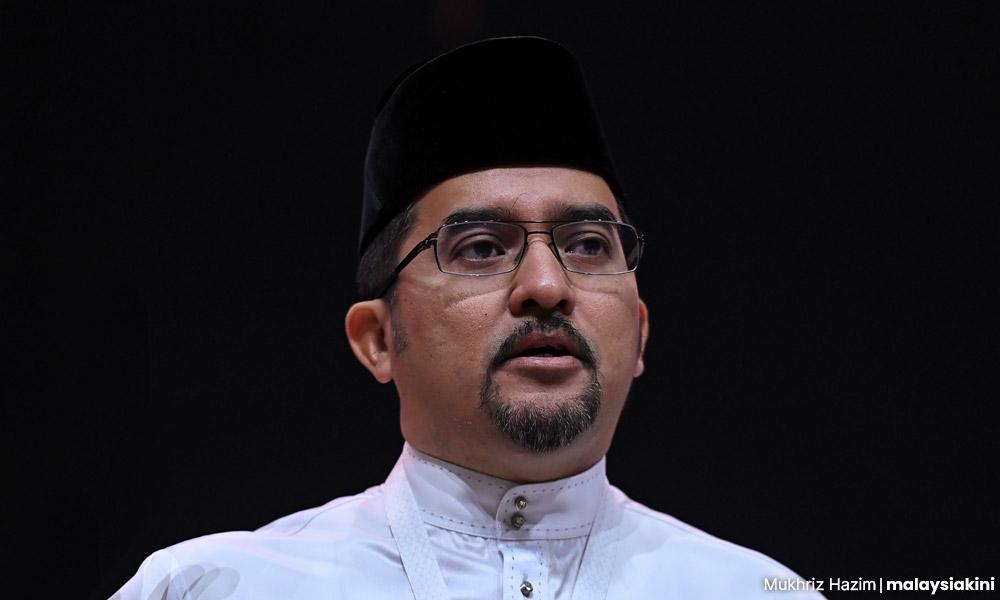Media Statement – 29/4/2023
After Mandatory Death Penalty, Abolish Detention Without Trial Laws
End Detention/Restriction Without Right To Fair Trial in Upcoming May Parliamentary Session
As this Malaysian government’s actions leading to the abolition of mandatory death penalty and imprisonment for natural life is applauded, MADPET (Malaysians Against Death Penalty and Torture) calls for the immediate repeal of the even more draconian Detention Without Trial(DWT) laws like Prevention Of Crime Act 1959(POCA), Prevention Of Terrorism Act 2015(POTA) and the Dangerous Drugs (Special Preventive Measures) Act 1985.
As there is no trial, the victims of DWT laws will never ever be sentenced to death or natural life imprisonment for the crimes the government allege that they have committed.
These DWT laws ignore the presumption of innocence until proven guilty after a fair trial, where accused persons have a right to defend himself/herself and the Judge finally decides whether one is guilty or not. Article 11 of the Universal Declaration of Human Rights states: “Everyone charged with a penal offence has the right to be presumed innocent until proven guilty according to law in a public trial at which they have had all the guarantees necessary for their defence.”
Anyone, including the innocent, can be victims of any DWT laws, as these Malaysian laws does not even allow victims the access to court to challenge the reasons used to justify their detention or restrictions.
Section 15B(1) of POCA, where similar provisions are in all DWT laws, states, ‘There shall be no judicial review in any court of, and no court shall have or exercise any jurisdiction in respect of, any act done or decision made by the Board in the exercise of its discretionary power in accordance with this Act, except in regard to any question on compliance with any procedural requirement in this Act governing such act or decision.’ This means you cannot challenge or question the alleged reasons or justifications as to why you have been arrested, detained or restricted indefinitely by DWT laws, only whether the proper procedure has been followed by the authorities.
Double Punishment for Crimes
Section 17 POCA states that, ‘Any registered person who is convicted of any offence committed after the date of the entry of his name on the Register under the provisions of any law specified in the Second Schedule shall be liable to imprisonment for a term of twice as long as the maximum term for which he would have been liable on conviction for that offence, and also to whipping.’ This includes some offences under Penal Code, Societies Act and other laws.
Thus, for example, for the Section 323 Penal Code offence of ‘…voluntarily causes hurt, shall be punished with imprisonment for a term which may extend to one year or with fine which may extend to two thousand ringgit or with both….’, the person whose name has been registered under POCA will be facing the risk of DOUBLE the sentence provided in law. Noting the fact that persons registered under POCA have literally have no way of challenging the reasons for the arrest, detention, restriction and even entry into the Register, it is most unjust and in violation of the principle in Article 8(1) of the Federal Constitution which states, ‘(1) All persons are equal before the law and entitled to the equal protection of the law.’ On conviction of a crime, everyone should be sentenced in accordance to the sentence provided in law for that crime. To be liable to higher or double sentence is simply unjust.
Even If Celebrities Like Anwar, Kit Siang… No Longer Victims Of DWT – It Still Must Go
Even though, for some time now, since the abolition of the infamous Internal Security Act, no prominent persons like Karpal Singh, Anwar Ibrahim, Mat Sabu, Hadi Awang, Irene Xavier or Theresa Lim Chin Chin have been arrested, detained or restricted under DWT laws, many persons continue to be victims of these DWT laws and we cannot ignore the need to speedily repeal all DWT laws.
In March 2022, a member of the Crime Prevention Board (LPJ) under the Home Ministry revealed that from April 2014 until March 10 2022, action has been taken against 10,012 individuals using POCA. A total of 2,673 individuals were placed under the detention order while another 6,537 individuals under the surveillance order, and another 802 individuals were released. As of 28/2/2022, a total of 425 individuals are still placed under the detention order while another 2,166 individuals are still under surveillance order. (Star, 13/3/2022)
He also reportedly said that ‘…based on the 2021 statistics, a total of 1,190 people had action taken against them under Poca compared with 1,968 in 2020 in several areas including Simpang Renggam, Pokok Sena, Bentong and Bintulu. He said most of the cases involved drug-related crimes and criminal fraud through the Internet…’
In March 2023, a media report stated, ‘…On POCA, Saifuddin [Home Minister Saifuddin Nasution Ismail] said that 132 individuals were detained, of which 67 were Malays, 13 Chinese, 38 Indians, 13 of other races and one foreigner. He said those detained were between 19 and 59 years old…’(Star, 7/3/2023)
POCA, which was originally for violent crimes committed by triads and gangs, have since been amended and it can be applied broadly even for all penal code offences suspected to be committed by more than 1.
Resort To DWT Laws Easy for Law Enforcement to Avoid Duties to prove guilt?
In the recently disclosed 2019 Royal Commission of Inquiry Report On The Discovery Of Transit Camps And Graves At Wang Kelian, which confirmed the deaths of about 114 persons, it was stated that the before 2015, the police did not bring many cases to court for human trafficking prosecution, as POCA was used to take action against them. This is possible as POCA now is so broad and can be used for a variety of crimes.
Hence, DWT laws can even be used to ‘protect’ even criminals, to deny victims of crime closure, and even the possibility of being compensated by convicted criminals.
How many murderers are under DWT laws, who if charged and convicted in court would face the death penalty if convicted – who now allows them to walk free after being detained for a couple of years?
Has the DWT laws caused law enforcement to get lazy, as they do not have to thoroughly investigate to be able to convince the court of the guilt of the accused if they elect to use POCA and other DWT laws.
Are there cases where bribes were involved to get law enforcement to use DWT, rather than go for a fair trial, where there may be a risk of other truths being revealed during trial, and the possibility of higher sentences for the guilty?
The guilt of any criminal must be proven in court, and only the courts must have the power to punish vide the sentences provided for the respective crimes in Malaysia.
Extrajudicial punishment imposed by the administration or any other administrative Boards must end. Only the courts and judges determine guilt, and should be the only ones allowed to impose punishment on a person convicted of a crime.
Noting that the next Parliamentary Session of the Malaysian Parliament will be on 22nd May - 15 June 2023, MADPET calls on the Malaysian Government to table the Bills that will lead to the abolition of Detention Without Trial Laws. The session thereafter will be in October, which is long way.
MADPET reiterates the call for a speedy repeal of SOSMA, Sedition Act, Societies Act and all other draconian laws.
Charles Hector
For and on behalf of MADPET(Malaysians Against Death Penalty and Torture)
Eighty-three held under Poca from Jan 1-March 10
Nation
Sunday, 13 Mar 2022 4:50 PM MYT

KOTA
BARU: A total of 83 individuals nationwide have been detained under the
Prevention of Crime Act (Poca) 1959 from Jan 1 to March 10 this year.
A
member of the Crime Prevention Board (LPJ) under the Home Ministry,
Datuk Khalil Azlan Chik said from the figure, 12 were placed under the
detention order while another 71 individuals were placed under the
surveillance order.
He said LPJ received many case files for
action either to issue a police detention order or a surveillance order
against hardcore criminals who cannot be prosecuted by the courts due to
certain problems.
"It is difficult to accuse a person in court
without proof. However, there are testimonies about the involvement of
individuals and their files have already been submitted.
"Action can only be taken after we have gone through the processes at Bukit Aman and the Attorney General’s Chambers (AGC).
“The
enquiry officer would also have to meet the detainee before making
recommendations to LPJ for further action,” he said to reporters after
launching the Melor police station here.
Also present were
Kelantan police chief Datuk Muhamad Zaki Harun and Kelantan Crime
Prevention and Community Safety Department (JPJKK) head ACP Mit Emong.
Khalil
said since Poca was introduced on April 2, 2014 until March 10, action
has been taken against 10,012 individuals under the Act.
A total
of 2,673 individuals were placed under the detention order while
another 6,537 individuals under the surveillance order, and another 802
individuals were released.
As of Feb 28, a total of 425
individuals are still placed under the detention order while another
2,166 individuals are still under surveillance order.
This brings the total number of those who are still under detention and surveillance orders at 2,591 individuals.
"In
Kelantan alone, there are a total of 127 individuals from outside the
contingent registered under Poca placed in various police stations in
this state,” he said.
Khalil said based on the 2021 statistics, a
total of 1,190 people had action taken against them under Poca compared
with 1,968 in 2020 in several areas including Simpang Renggam, Pokok
Sena, Bentong and Bintulu.
He said most of the cases involved drug-related crimes and criminal fraud through the Internet.
"We
also discovered that most of them are aged between 30 and 40. The
youngest to date is an 18-year-old individual while the oldest is 73
years old.
"The purpose of the order is to initiate
police-society collaboration to guide the individuals into becoming
useful individuals. We hope after two years, they will be rehabilitated
and released to their home states,” he added. - Bernama, Star - 13/3/2022
Hundreds held under Sosma, Poca and Pota last year
Nation
Tuesday, 07 Mar 2023

KUALA
LUMPUR: A total of 624 individuals were detained under the Security
Offences (Special Measures) Act (Sosma) last year, says Datuk Seri
Saifuddin Nasution Ismail (pic).
The Home Minister added that 140 of these detainees had already been released.
“Of
those detained, 71 were charged in court, 401 were punished, 140 were
released and 12 are still under investigation,” he said in a written
reply to a question by Chow Yu Hui (PH-Raub) in the Dewan Rakyat
yesterday.
Chow had asked about the number of those detained under Sosma, as well as the breakdown of their race and ages.
He
also enquired about the number of those detained under the Prevention
of Crime Act (Poca) and the Prevention of Terrorism Act (Pota).
Last
month, Saifuddin Nasution, in a written reply to RSN Rayer
(PH-Jelutong), said Sosma was still a relevant law to maintain national
security because it allows the police to take immediate action to defuse
any threats to national sovereignty and harmony.
Repealing
Sosma was not among the pledges in Pakatan Harapan’s GE15 election
manifesto, though several DAP leaders had previously criticised Sosma as
having draconian provisions.
Meanwhile, Saifuddin Nasution said those detained under Sosma last year were between 18 and 69 years old and included 247 Malays, 83 Chinese, 89 Indians, 47 of other races and 158 foreigners.
On Poca, Saifuddin said that 132 individuals were detained, of which 67 were Malays, 13 Chinese, 38 Indians, 13 of other races and one foreigner.
He said those detained were between 19 and 59 years old.
Poca, which was amended in 2015, is a preventative law to deal with criminals, particularly members of secret societies, terrorists and other undesirable persons.
Saifuddin Nasution said that only one individual, a Malay, was detained under Pota and is currently under a detention order.
Pota, which was passed in April 2015, allowed authorities to take action against Malaysians suspected of being involved with the Islamic State or other terrorist organisations.
To a written question by Datuk Wan Saiful Wan Jan (PN-Tasek Gelugor), Saifuddin said that as of Jan 30 this year, 195 individuals were detained under Sosma and are currently undergoing trial.
Of this total, 46 were for smuggling and human trafficking, two for terrorism and 147 for organised crime under the Penal Code. - Star, 7/3/2023








